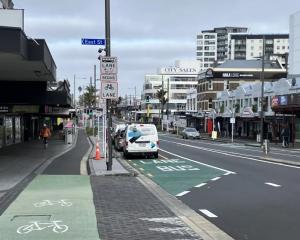
An invitation for regional museum staff to go on a behind-the-scenes tour of some of Te Papa's collections on November 5 included the condition that "wahine [women] who are either hapu [pregnant] or mate wahine [menstruating]" should not attend, the New Zealand Herald reported this morning.
Mr Finlayson downplayed concerns, saying he did not get involved in the day-to-day running of Te Papa, but he understood the message was not an instruction.
"It's an advisory requested by the iwi, but it's for people to make up their own minds," he said.
Te Papa spokeswoman Jane Keig said the rule was imposed to respect Maori beliefs surrounding the Taonga Maori collection.
"There are items within that collection that have been used in sacred rituals. That rule is in place with consideration for both the safety of the taonga and the women."
She said there was a belief that each taonga had its own wairua, or spirit, inside it.
If an object is tapu it is "forbidden" and in Maori culture it is believed that if that tapu is not observed, something bad will happen.
Maori regard pregnant, or menstruating, women as sacred and the policy was aimed at protecting them from the objects.
It was expected that women attending the tour on November 5 would be honest about their conditions.
The rule is not in place for the general exhibition.
However, feminists are seeing red over the rule.
Deborah Russel, feminist blogger of The Hand Mirror blog, said the policy had no place in modern society.
"I don't understand why a secular institution, funded by public money in a secular state, is imposing religious and cultural values on people."
The state should not impose other people's cultural practices on people in general, Ms Russel said.
"If it is important to Maori people that pregnant and menstruating women aren't included in the tour, then maybe the tour shouldn't take place at all."












